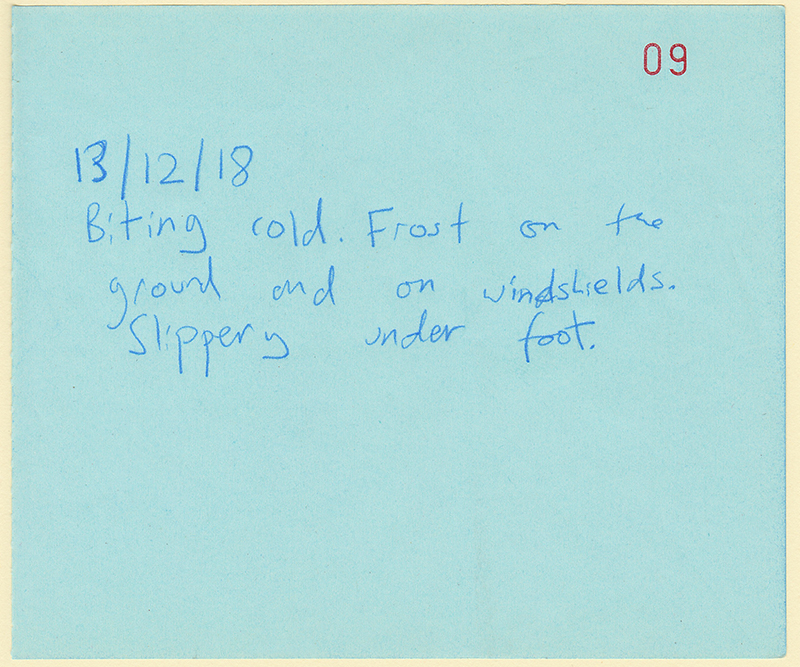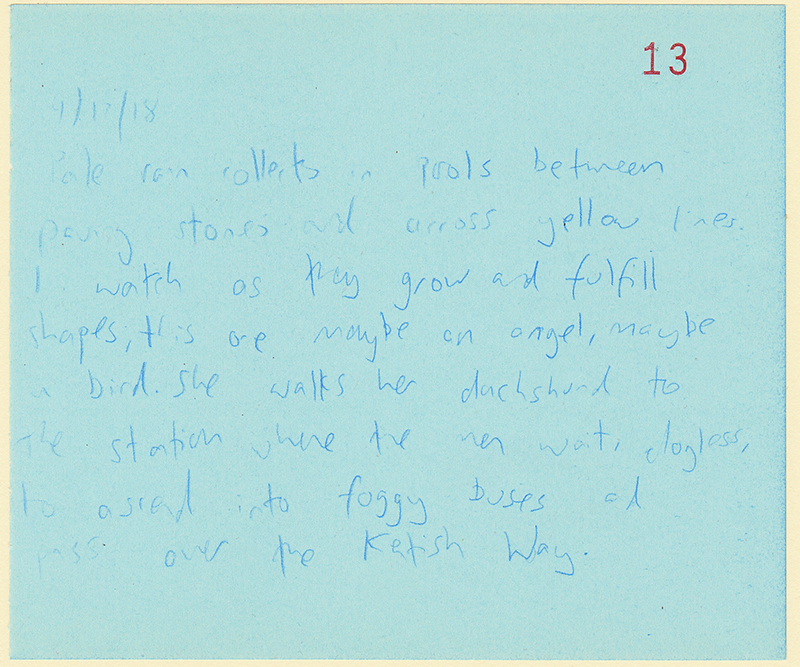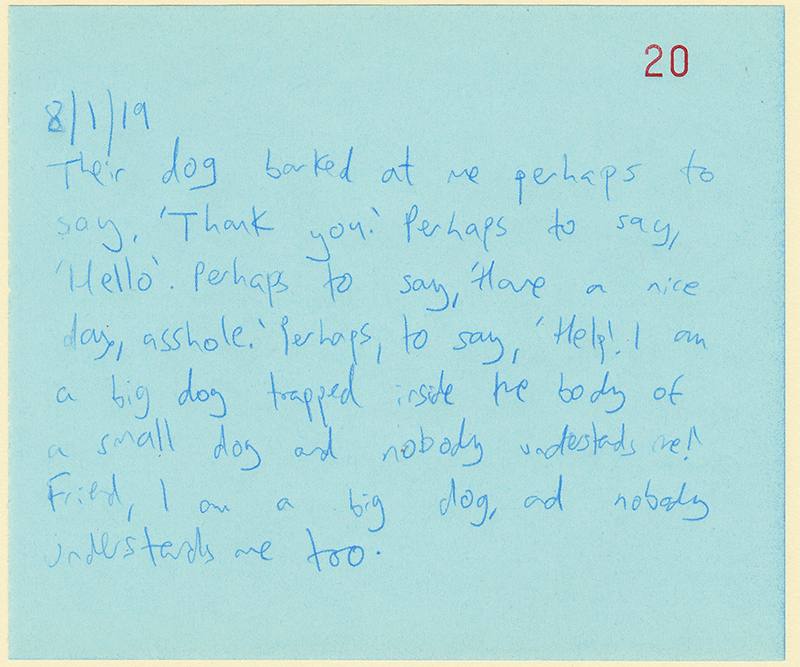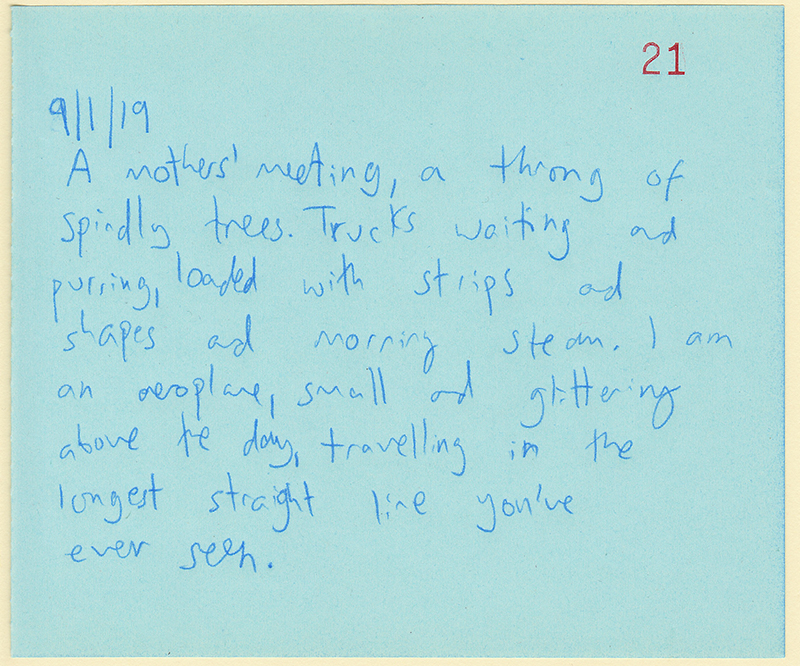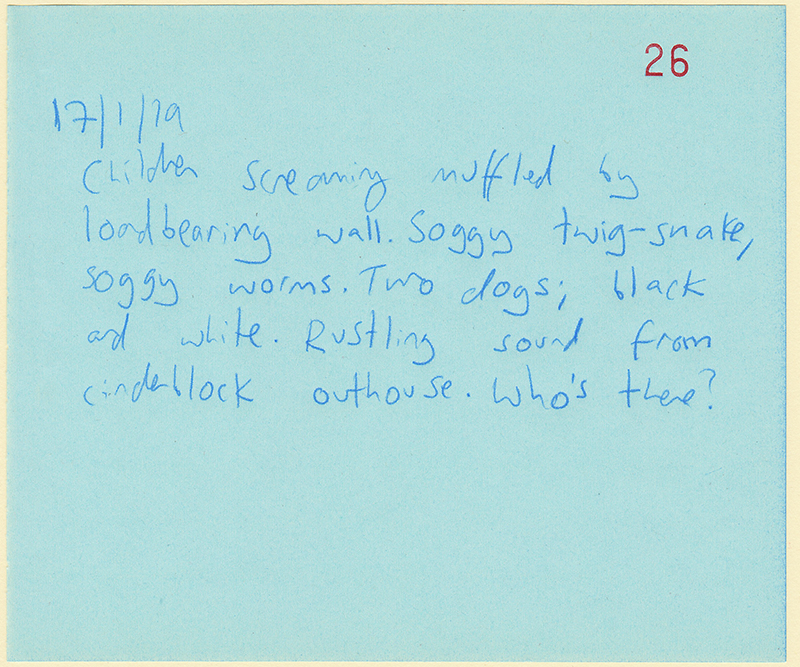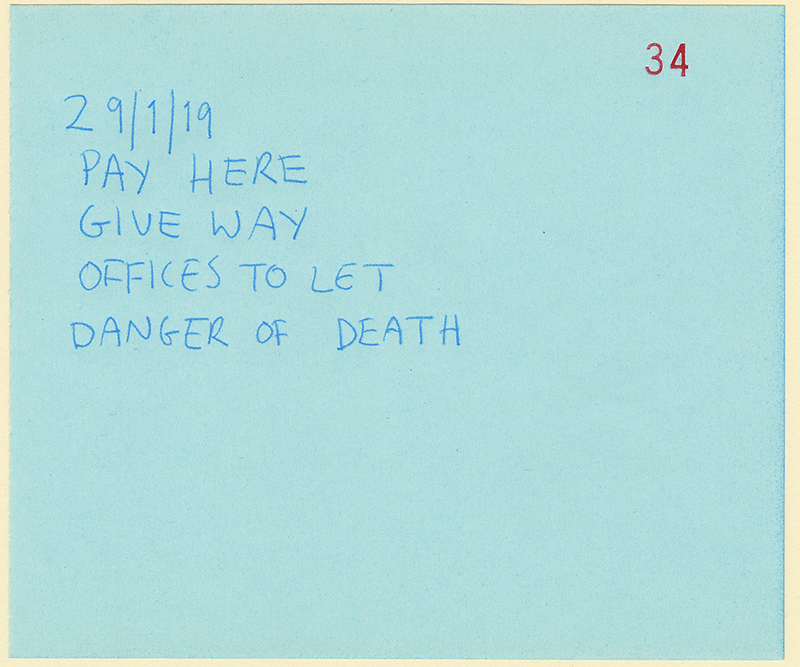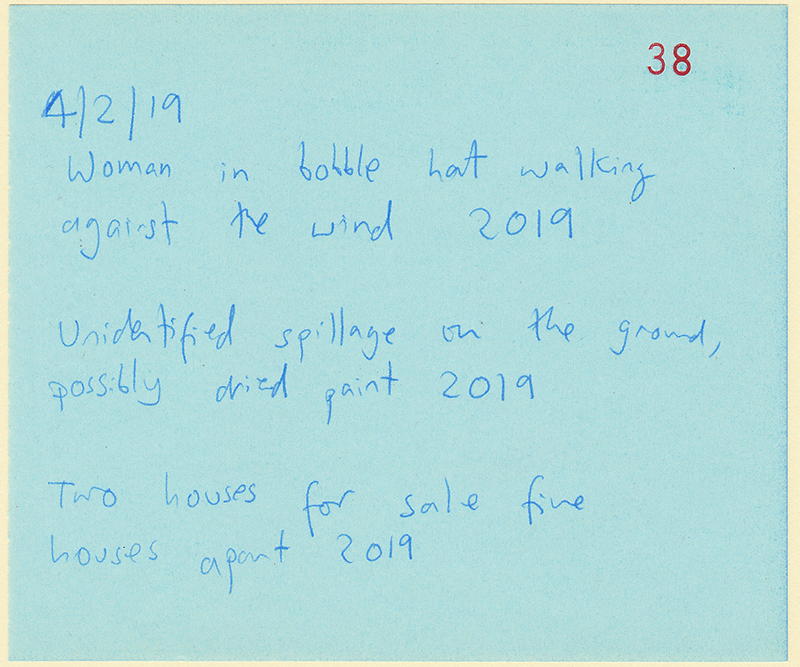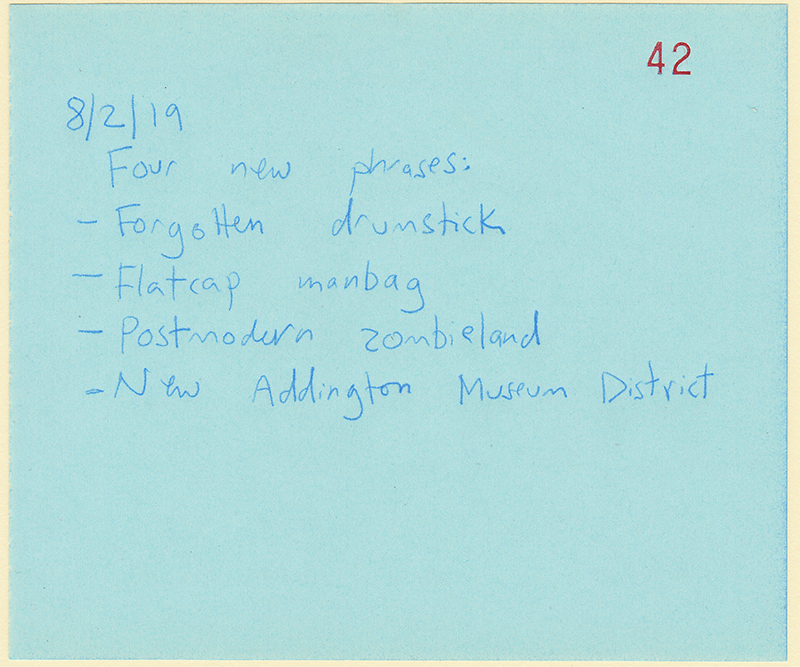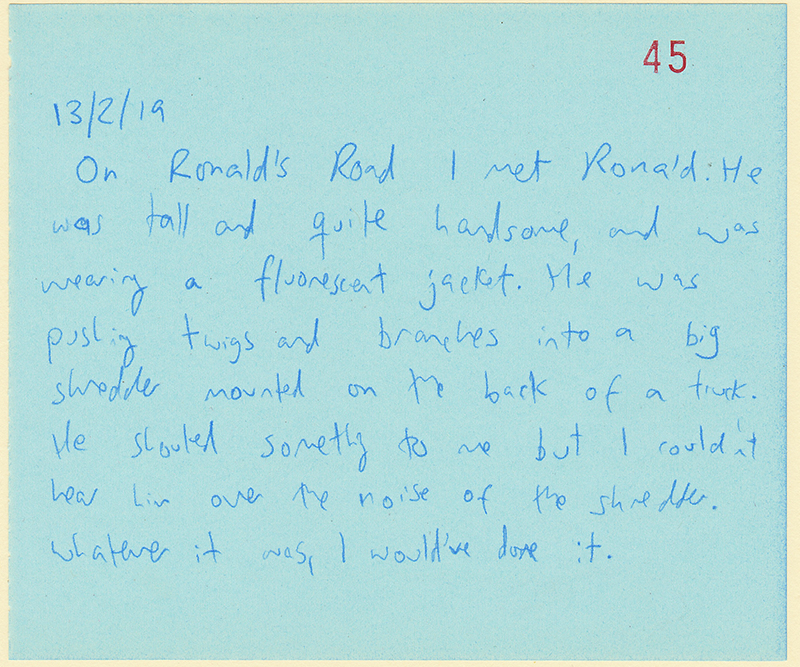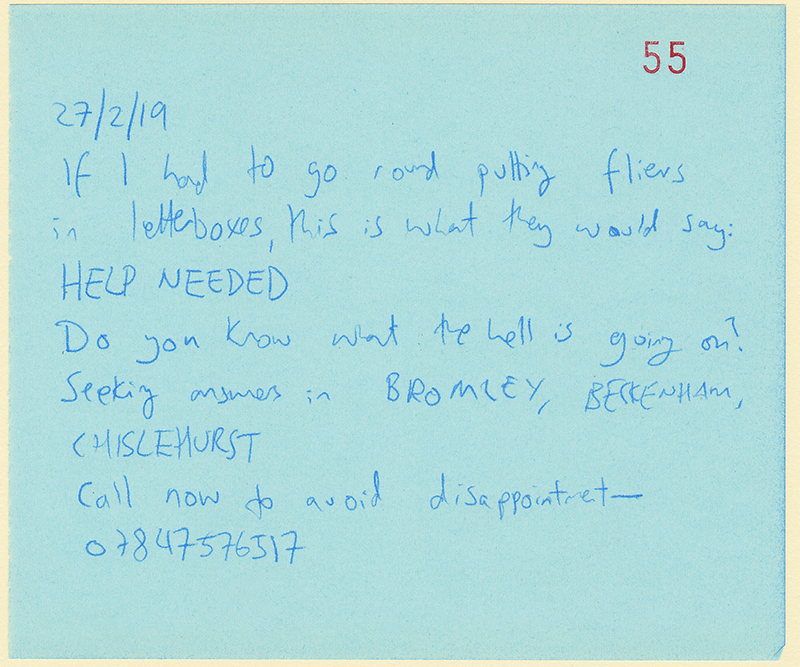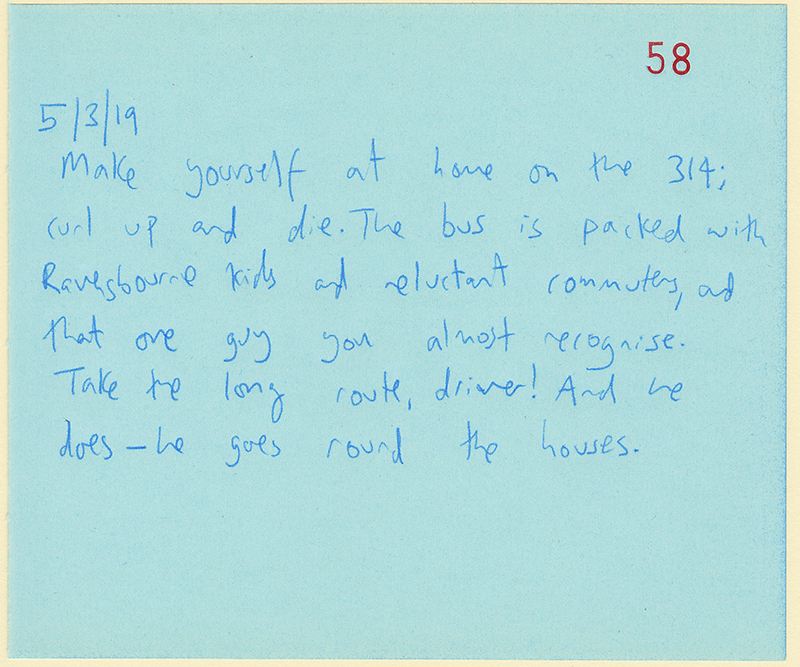1. Observe the weather on your walk to the station in the morning
2. Write down those observations, along with the date, on a page from the duplicate pad
3. Tear out the original and dispose of it at some point during the day
4. Retain the duplicate for your records.
It didn’t take long for these ‘weather reports’ to move beyond simply reporting the weather. The objective, almost scientific language quickly became expressive. I wrote down all the different things I saw on my way to work - people, dogs, situations - and often imagined interacting with them. What would that man say to me? What would that dog say to me?
Soon, the weather reports became abstract, featuring poems, dialogue and found language. The format and content were working in unison. Writing was not just a way to record the world but a way to understand it, or to find new ways of misunderstanding it.
But at some point it all became too personal. The late weather reports are like diary entries: passing thoughts, ideas, anxieties. I told myself this was a transitional stage of the project, but I never found a way out of it. I lost track of why I was writing the reports, and they became fragmented, scattered and lazy.
It was a very natural ending. One Monday, I just didn’t feel like doing it any more. It’s good to know when a project has given all it can. The weather reports reconnected me with my writing practice, and forms I explored on the duplicate pad have found new homes in subsequent stories and pieces of writing.
